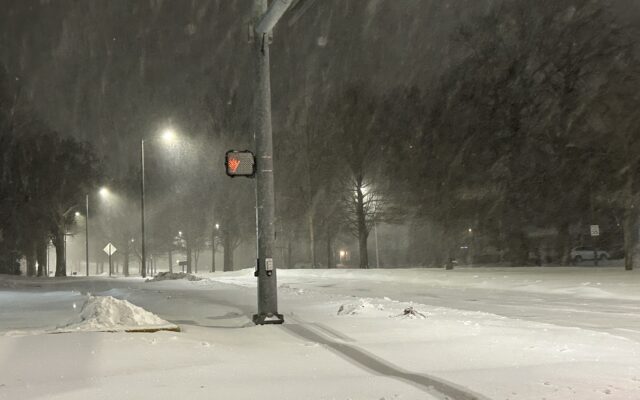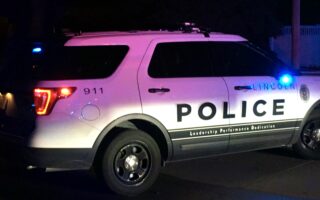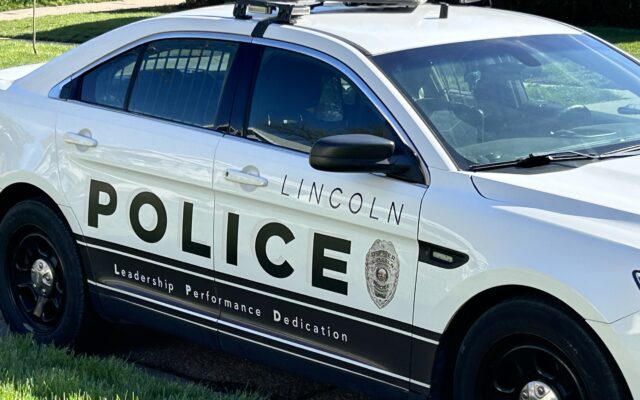City Officials Give Update on Winter Storm Maintenance

LINCOLN–(News Release Jan. 12)–Mayor Leirion Gaylor Baird and City officials today encouraged residents to take necessary precautions during a storm that is producing drifting snow, high winds and subzero wind chills. Plow crews continue to plow arterial streets and are scheduled to continue clearing residential streets for the next 24 hours.
“As the winter storm gained strength, so too did our City’s response. We deployed our largest possible response of 165 snowfighters, who worked overnight to clear Lincoln’s arterial streets and started residential plowing at 8 a.m.,” Mayor Gaylor Baird said.
Joining Mayor Gaylor Baird at the news conference were Lincoln Transportation and Utilities Director Liz Elliott and Pat Lopez, Lincoln Lancaster-County Health Director.
The City of Lincoln declared a Snow Emergency effective at 3 p.m. Thursday, January 11. Two parking bans are in effect:
- A residential parking ban means that parking is banned only on the even numbered side of residential streets during 2024. This will assist snowplow crews in clearing neighborhood streets faster and more efficiently. A residential parking ban applies to streets that are not emergency snow routes, arterials or bus routes or included in a snow removal district.
- A snow emergency parking ban means parking is banned on both sides of emergency snow routes, arterial streets, school and bus routes. Maps of these routes are available at lincoln.ne.gov/snow under the “Parking Bans & Ordinances” tab. Please plan for alternate parking to allow crews room to clear the way safely and efficiently.
During the residential parking ban, residents should move their vehicles off of the streets or to the side of the streets with odd-numbered addresses. Residents are reminded that the Winter Operations team is better able to respond to resident service requests after a storm has passed and arterial streets and emergency routes have been serviced. Residents may monitor plowing progress via the snowplow tracker at lincoln.ne.gov/snow.
“By moving your vehicles off the street, snowplows will be able to clear more snow from your street efficiently and quickly. This helps you and all your neighbors get in and out of your neighborhood more easily,” Director Elliott said.
Director Lopez urged residents to take precautions to protect themselves from carbon monoxide poisoning that can occur during the winter months. Carbon monoxide (CO) is an odorless and colorless gas that can make people unconscious or too weak to escape before they experience other symptoms of CO poisoning like nausea, dizziness, sleepiness, lethargy, difficulty breathing, and seizures.
“Incidents of carbon monoxide poisoning increase during cold weather, and one reason is due to the use of alternative heat sources to stay warm,” Lopez said.
Lopez outlined ways to protect against CO poisoning:
- Check CO and smoke alarms to ensure they’re working properly and are installed on every level and inside each bedroom of your home.
- Never operate a portable generator inside any indoor space, including a garage or shed.
- Don’t use ovens or grills to heat your home.
- Don’t warm up cars in the garage.
Lopez also reminded residents to keep pets safe in frigid conditions. Pet safety tips include:
- The safest place for your pet is out of the elements and inside your home or in a heated building.
- If your dog or any pet is going to be outdoors, it must have a well-insulated shelter.
- Always provide fresh, clean water for your pets. In cold weather, use heated water bowls to prevent freezing.
- Make sure pets have a place they can go to the bathroom that’s cleared of snow.
- Ice-melting chemicals can irritate and burn pads of feet. Don’t allow your pet to lick its feet after a walk outdoors. Use a damp towel to wipe off feet and belly.
“Keeping our residents, and furry friends, safe and healthy is our number one priority,” Mayor Gaylor Baird. “That’s why, as the weather conditions fluctuate over the next several hours and days, our response will evolve to meet them and protect our community.”




